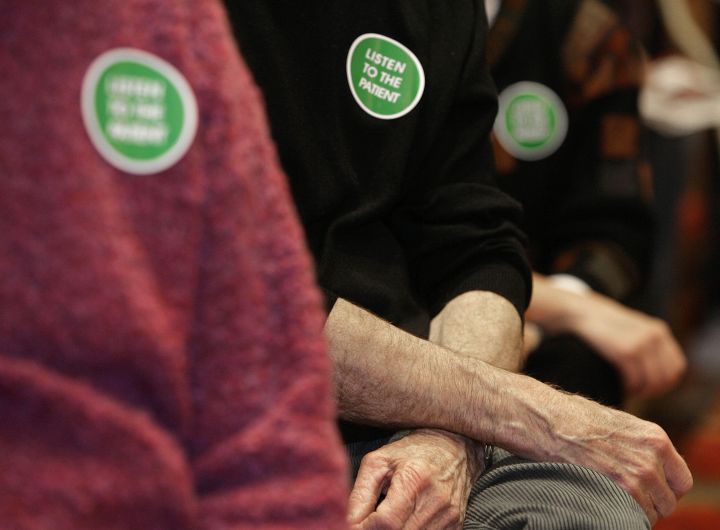The College of Physicians & Surgeons of Alberta approved a new advice document Friday to help doctors once physician-assisted suicide becomes legal in Canada.

Depending on whether or not the federal government is granted an extension, this could happen as soon as Feb. 6, 2016.
The college created the document in September, then asked for feedback from the public. A few hundred responses have since shaped amendments to the draft, which include the sections on “competent adult patients” and the “period of reflection.”
READ MORE: What do you think of physician-assisted death? Alberta doctors want to know
The old document restricted consent to competent adult patients, but that has been amended to include mature minors. The document states, “legal precedent recognizes mature minors as adults in their ability to consent; the college recommends physicians take a careful and conservative approach to mature minors.”
CPSA Registrar Dr. Trevor Theman said there’s no strict age limit on the requirement for consent, suggesting medical procedures aren’t typically based on age.

Get weekly health news
“It’s somebody who would not yet be of adult age, who is fully capable of understanding the options and the choices that are available–and the consequences of each–and is understood to have the capacity to make that decision,” he said.
The original document had a set time of 14 days as the period of reflection, which has been amended to be more flexible to account for different clinical conditions. The document reads: “A period of reflection should follow the initial request in most cases, the length of time proportional to the urgency of the patient’s circumstances. For patients with a non-terminal and slowly progressive condition, a reflective period of 14 days from initial request until final consent request is recommended.”
- Calgary couple hopeful wedding dress and wheelchair will be returned after car theft
- Public consultations underway on future of Alberta’s Fortress Mountain Resort
- Alberta Premier defends controversial referendum questions on immigration
- Calgary water restrictions for feeder main repairs to return in March
You can read the advice document on the college’s site here.
Theman said doctors will still be able to opt out of providing assistance to patients who wish to die, but must provide patients with access.
“If I, as a physician, choose not to assist my patient, I need to make sure my patient has access and is not disadvantaged from gaining access to legally available procedures,” Theman said.
In addition to getting feedback on the advice document, the college is now looking at amending standards of practice around consent. These standards are guidelines doctors are expected to follow and if they don’t, they can be disciplined. The consent standards will be sent out for consultation in January and will return to council for review and final approval in spring 2016.
READ MORE: Debate flies at CMA meeting over physician’s role in assisted dying






Comments
Want to discuss? Please read our Commenting Policy first.